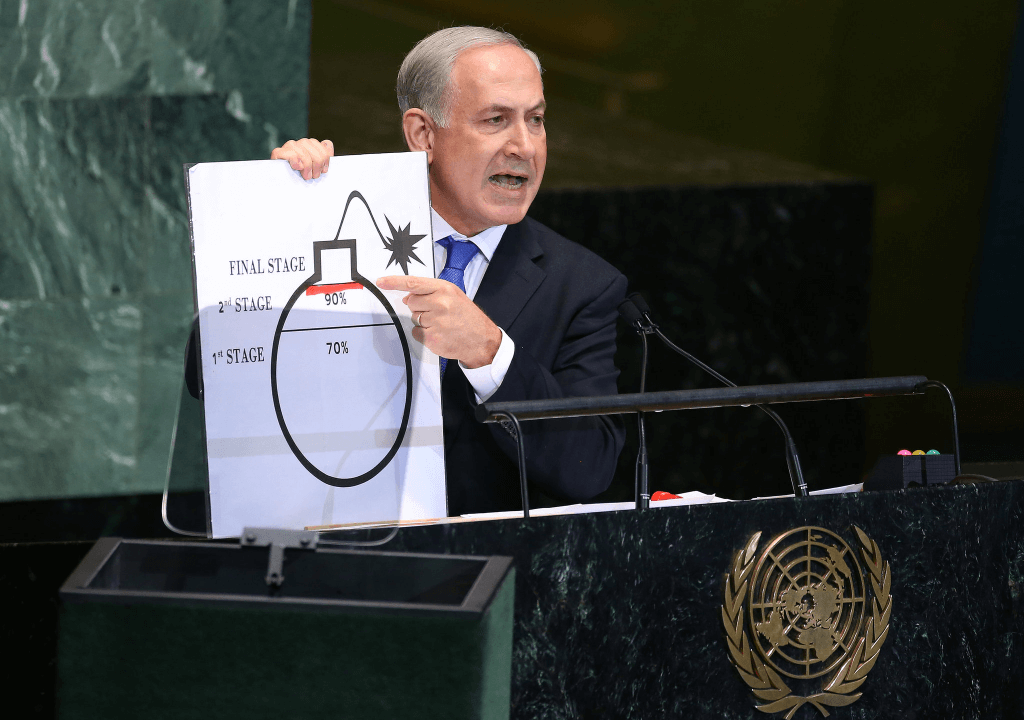Iran, the land of the Aryans and the cradle of civilization, has a rich history shaped by the rise and fall of many kingdoms over the centuries. This diverse and multicultural nation has experienced unity under the formidable leadership of great rulers. Today, modern Iran, known as the Islamic Republic, encompasses a diverse array of cultures and ethnicities, even as it is predominantly characterized by its Shia Islamic identity. The current theocratic regime is infamous for its forceful enforcement of Islamic laws and values, and it also applies considerable pressure on various ethnic groups within the country while extending its influence over other nations through religiously motivated militant organizations.
Iran keeps many Islamic issues alive and is known for challenging Saudi Arabia over the leadership of Islam. Its long standing desire for leadership in the Muslim world has contributed to ongoing tensions with Israel. Relations between the two states are at an all-time low, marked by missile exchanges and targeted attacks on leaders. Though Iran and Israel do not share a direct border, Iran’s political influence extends into areas near Israel, and both have engaged in a proxy conflict for years, often framed as a holy war. Now, however, Israel seems determined to end this indirect conflict and neutralize the threat from Iran.
Many believe that rising tensions could lead to a full-scale war, while others argue that Israel will refrain from such actions, as Iran’s geographic position—controlling the strategic Strait of Hormuz—gives it significant leverage. Iran’s geography has always made it a difficult country to conquer. However, Israel seeks revenge, as retaliation has been a defining part of its history. Therefore, most likely, they will adopt a highly strategic approach, with the ultimate goal of dismantling the Islamic Republic. Political experts believe Israel may exploit Iran’s complex ethnic makeup, which has only been held together by the tougher actions of the Islamic regime thus far.
Iran has consistently accused Israel and the West of exporting Western values into the country, which it believes could threaten its theocratic government. It has also accused foreign governments of attempting to influence various ethnic groups within Iran that share cultural ties with other sovereign nations. As a result, Iran has closed many communication channels to the outside world. However, Israel is likely to breach these barriers to provide more information to the Iranian people, considering information a powerful tool to undermine the Islamic Republic. Israel may also play a role in promoting the growing celebration of pre-Islamic Persian glory, which could challenge the Islamic Republic, a regime accused of sacrificing Persian identity for an Islamic one.
Iran is at risk of fragmentation if Israel decides to act. While Iran’s mountainous geography provides a strategic advantage, it also serves as a natural barrier that isolates various communities with different ethnicities, languages, and identities. Many of these groups, such as the Azeris, Kurds, Arabs, Baloch, Turkmen, and Mazandaran, maintain foreign connections or share ties with neighboring countries. These regions have preserved their distinct identities despite the challenges posed by Tehran. Some of these regions demand greater autonomy, while others lean toward separatism. However, the Islamic Republic will not tolerate such movements and continues to attempt to unify the population through religious identity and increasingly authoritarian measures.
During the 1979 Islamic Revolution, three ethnic groups—Kurds, Turkmens, and Arabs—backed by their counterparts abroad, attempted to ascend and form an independent state. The Azeris demanded more autonomy, and although they were suppressed, the situation remained volatile and could flare up again. Israel could potentially assist in this regard. The United States and the United Kingdom, known for similar practices, might ally with these ethnic groups and their kin abroad based on Israel’s interests. The Azeris will seek to unite with Azerbaijan, and the Kurds in Iran will likely also pursue the formation of a grand Kurdistan.
Additionally, the oil-rich Arab regions in Iran could attract special U.S. support, and such a move could completely collapse Iran’s economy. In southeastern Iran, the Baloch have maintained close ties with their counterparts in Pakistan, aiming for a separate state from the very beginning. This cross-border ethnic solidarity could easily destabilize Iran, especially since Tehran currently has poor relationships with its neighbors. If they lose control over these territories or make them volatile again, the Persian-majority region could shrink to a landlocked state, jeopardizing all its geopolitical advantages.
It needs to be considered that Israel is already stretched in its efforts to build strong relationships with Azerbaijan regarding Azeri separatism and with Saudi Arabia concerning Arab separatism. Through the growing relationship with Saudi Arabia, Israel can also exploit the Sunni-Shia conflict. The Baloch territories, which are demanding separatism, are predominantly Sunni.
Recognizing the challenges posed by Israel, Iran is also developing counter-strategies. They present themselves as the saviors of Muslims, not only for Shia but for all branches of Islam. They demand unity from other Islamic countries to carry out their religious task of eliminating Jews. Mass arrests of protesters or separatists from various ethnic groups, accused of terrorism, are also taking place. However, Iran is playing a risky game; as long as they target Israel, they are at risk of collapse.








